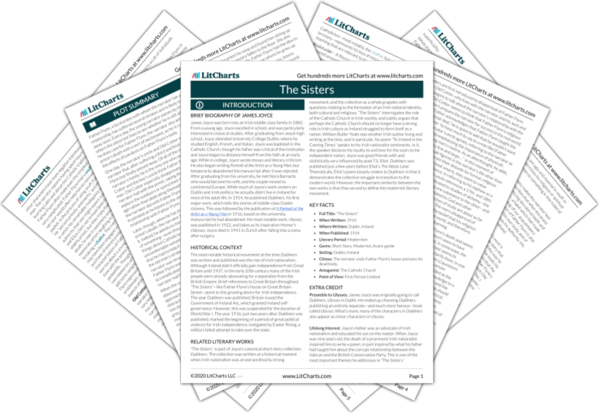Father Flynn’s snuff represents the priest’s corruption, and, by extension, the corruption of the Catholic Church as a whole. In the story, the narrator relates to readers how he would often supply the priest with his snuff, often helping him to prepare it because the older man’s deteriorating health prevented him from opening the packet himself. The narrator describes Father Flynn’s clumsiness as he uses the snuff, which causes him to spill snuff all over his “ancient priestly garments” and also gives him discolored, ugly teeth. In brief, Father Flynn’s snuff habit is extraordinarily inelegant, and undermines the objective of his traditional priest’s clothing, which is to make him appear to be a respectable, spiritual figure. However, Father Flynn’s addiction to a material substance, which sullies his garments, prevents him from embodying that role. In a way, this serves to humanize Father Flynn. Although he is supposed to be such an important religious figure, his snuff habit demonstrates that he is just a human being like all of the other characters, subject to the same vices and bad habits as everyone. Still, even this characterization serves to undermine the authority of the Catholic church, suggesting that the Irish people shouldn’t elevate priests to such positions of power when, ultimately, they are human beings, just as imperfect—if not more so, in Father Flynn’s case—than the parishioners who idolize them.
Father Flynn’s Snuff Quotes in The Sisters
“It may have been these constant showers of snuff which gave his ancient priestly garments their green faded look for the red handkerchief, blackened, as it always was, with the snuff-stains of the week, with which he tried to brush away the fallen grains, was quite inefficacious.”










